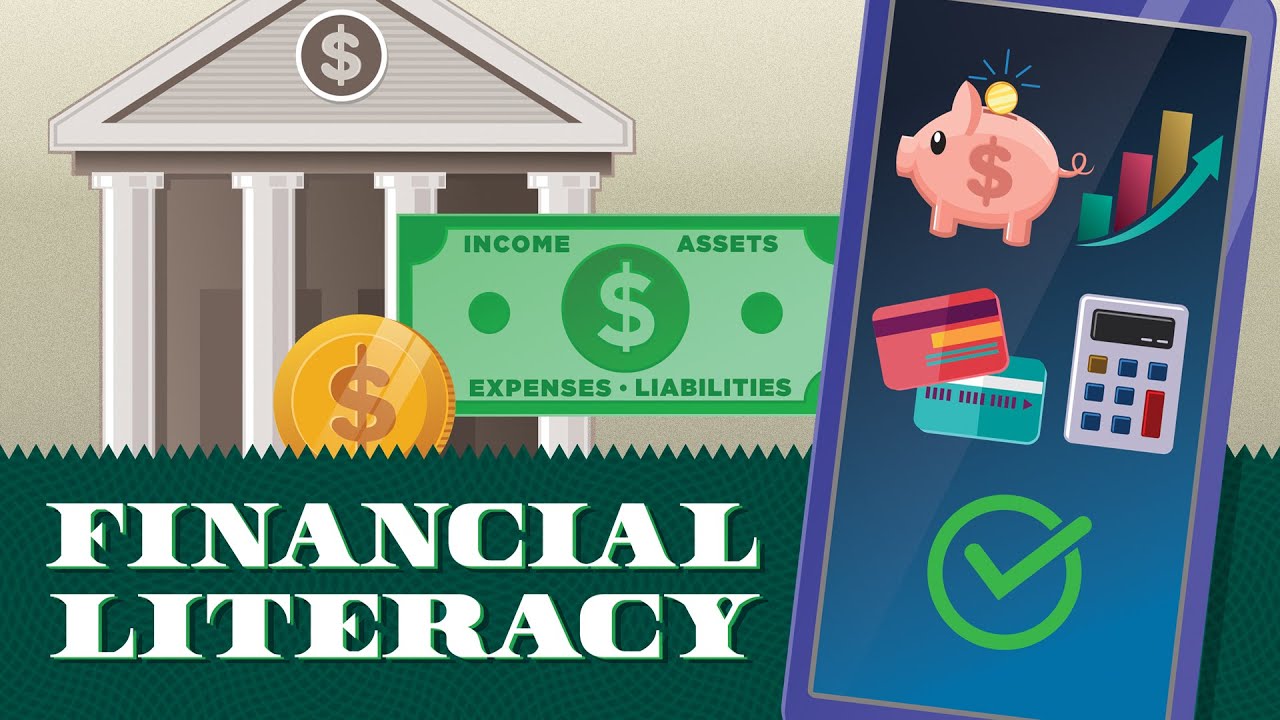Top 8 Wealth Killers You Must Avoid
Summary
TLDRThis video discusses eight wealth killers to avoid for financial growth, including not investing, living beyond means, ignoring high-interest debt, poor health management, lack of financial education, starting late, paying yourself last, and the financial impact of divorce. It emphasizes the importance of investing, living within your means, and making wise financial decisions.
Takeaways
- 💼 Not being invested is a major wealth killer. It's better to be in the market consistently rather than trying to time it perfectly.
- 🏦 Living beyond your means can hinder wealth growth. It's crucial to increase living standards in proportion to income growth.
- 💳 Ignoring high-interest debt can be detrimental. Paying off high-interest debt before investing can be more financially beneficial.
- 🏥 Poor health management can lead to spending wealth on health issues later in life. Prioritizing health is essential for long-term wealth.
- 📚 Lack of financial education can result in missed opportunities. Continuous learning is necessary to stay updated with changing financial landscapes.
- 🕒 Starting late in investing can significantly impact wealth accumulation. The power of compounding growth emphasizes the importance of early investment.
- 💰 Paying yourself last can lead to insufficient funds for investing. Prioritizing investments over expenses is key to wealth growth.
- 💔 Divorce can be a significant wealth killer, especially without a prenup. Marriage decisions can have substantial financial implications.
- 🚗 Buying a new car is not an investment. Cars depreciate rapidly and come with ongoing expenses, making them poor financial choices for wealth growth.
- 📈 The importance of investing early and consistently cannot be overstated. Warren Buffett's wealth growth illustrates the benefits of early and sustained investment.
Q & A
What is one of the biggest mistakes people make when it comes to investing?
-One of the biggest mistakes people make is not being invested. Many try to time the market instead of spending time in the market, leading to missed opportunities for growth.
Why is trying to time the market often a bad strategy?
-Trying to time the market is often a bad strategy because nobody can predict the future. Missing just the best 10 trading days over a 20-year period can significantly reduce your returns.
What is the impact of missing the 10 best trading days on an investment over 20 years?
-If you miss the 10 best trading days over a 20-year period, your returns could drop from around 9-10% to only 5-6%, significantly reducing the growth of your initial investment.
How can living beyond your means affect your wealth accumulation?
-Living beyond your means reduces the amount of money you have available to invest, hindering your ability to grow your net worth over time.
Why is ignoring high-interest debt a critical mistake?
-Ignoring high-interest debt is critical because it accumulates quickly, often at rates of 15-25%, and diverts money away from potential investments, making it harder to grow your wealth.
What should you prioritize: paying off high-interest debt or investing in the stock market?
-You should prioritize paying off high-interest debt before investing in the stock market because the interest on the debt often exceeds potential investment returns.
How does poor health management impact your wealth?
-Poor health management can lead to significant expenses later in life, potentially requiring you to spend much of your accumulated wealth on regaining health.
Why is financial education important for growing your wealth?
-Financial education is important because it helps you understand and take advantage of evolving investment opportunities, ensuring you can maximize your money in a dynamic financial landscape.
How does starting to invest early benefit your wealth accumulation?
-Starting to invest early benefits wealth accumulation through the power of compounding, as demonstrated by Warren Buffett's net worth growth over time.
What does it mean to 'pay yourself first' in terms of financial planning?
-'Paying yourself first' means prioritizing investments before other expenses to ensure you consistently contribute to your wealth growth.
What are the potential financial consequences of a divorce?
-A divorce can lead to significant financial consequences, including the splitting of assets and potential forced sale of property at unfavorable times, reducing overall wealth.
Why is buying a new car considered a poor financial decision?
-Buying a new car is considered a poor financial decision because it immediately loses value upon purchase, and continues to depreciate, incurring maintenance and insurance costs while offering no return on investment.
Outlines

This section is available to paid users only. Please upgrade to access this part.
Upgrade NowMindmap

This section is available to paid users only. Please upgrade to access this part.
Upgrade NowKeywords

This section is available to paid users only. Please upgrade to access this part.
Upgrade NowHighlights

This section is available to paid users only. Please upgrade to access this part.
Upgrade NowTranscripts

This section is available to paid users only. Please upgrade to access this part.
Upgrade NowBrowse More Related Video

Do This Every Time You Get Paid. Accountant Payday Routine

8 Money Habits That Keep You Poor (STOP SELF SABOTAGE)

Financial Literacy - Full Video

कर्ज में मत फसों - पैसा बनाओ | The Total Money Makeover By Dave Ramsey Book summary |

FILIPINO MILLIONAIRE EXPLAINS: Money Habits Keeping You Poor

STOP Doing These 20 Things and Become RICH
5.0 / 5 (0 votes)